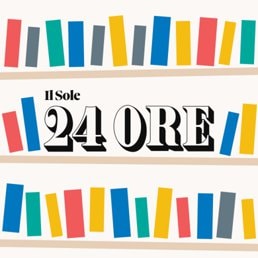Also published in Italy is the book by Joseph Henrich, Harvard’s “cultural evolutionist” anthropologist, “WEIRD”, The Western mentality and the future of the world (Il Saggiatore). We talked about it last year. It is an ambitious essay, which promises to be a milestone of the so-called “Big History” genre, as were Harari’s Sapiens or Diamond’s Weapons, Steel, Diseases. Books that condense in ponderous volumes investigations on the human condition conducted on boundless temporal-spatial horizons. “WEIRD”, acronym of “Western, Educated, Industrialised, Rich and Democratic” (Western, Cultured, Industrialized, Rich and Democratic), a difficult title to render in Italian and brilliantly resolved in an “interactive” cover, is a book of psychology, anthropology, economics and sociology of Western society, which highlights our cultural and cognitive peculiarities: the tendency to individualism, the difficulty in developing trust in others and a sense of community and, ultimately, the ignorance of the rest of the planet, that is, of the remaining 88% of the world population.
“War, religion and psychology”
A chapter of the book is dedicated to “War, religion and psychology”. Henrich helps us to better understand what James Hillman had defined, thus titling a book of him, A Terrible Love for War, an essay to reread in these terrible days. If Hillman had analyzed the aesthetic-mythical side of the attraction that drives peoples to war, “WEIRD” shows us the cognitive and social side of the relationship that man has with war. From the civil war in Sierra Leone, to the clash between families in ancient China, to the Hundred Years War in Europe, each conflict has three main “evolutionary meanings”: it tends to tighten the bonds between members of the same faction (family, clan, tribe, nation), strengthens adherence to social norms (exacerbating intolerance towards those who transgress them, or those who do not share them), deepens religious devotion. We can observe it today in the conflict between Russia and Ukraine: the words of Putin or Patriarch Kirill project the invasion on the level of the “clash of civilizations”, of a “Russian world” to be protected against the threat of a corrupt West. From a psychological point of view, this mechanism is catastrophic.
Yurii Makarov
This was explained by Yurii Makarov, writer and journalist, director of the main Ukrainian television, stating that the rift with Russia is now irremediable. In recent decades, psychology and psychiatry have increasingly dealt with the effects of trauma on populations: from research we know that there is a clear difference between traumatic experiences related to natural disasters (earthquakes, tsunamis, avalanches, etc.) and so-called traumas ” man-made ”, perpetrated by human hand, like the traumas of war. And when the perpetrator of the trauma is a person the victim “trusts” (think in that sense of intra-family sexual abuse) the wounds become even deeper. The consequences of “man-made” trauma are deeper: dissociative disorders, dysregulation of impulses, somatizations, alterations in the sphere of personality and identity, self-harm, risk of suicide, high possibility of developing abusive behaviors, attention disorders and state of consciousness, disturbances in systems of attribution of meaning and perception of the self.
The “betrayal”
To the physical and psychological devastation of the war is added the “betrayal” by people recognized as “neighbors” or “brothers”. Many Ukrainians have family members in Russia, but today, Makarov writes, “the Russians have become collective enemies” of the Ukrainians. The loss of trust in the human is told, better than words, by the looks of our Ukrainian psychotherapist colleagues, in this touching video by the Ukrainian Psychoanalytic Society. In these situations, “forgiveness”, a sign of effective trauma processing, is extremely difficult. The wounds remain long, as do the hatred and anger. The prospect of a clash of civilizations only intensifies the risk of mutual dehumanization. For this reason, all those initiatives that aim to deconstruct it are fundamental, for example the courageous public positions of Russian artists such as Kirill Savchenkov and Alexandra Sukhareva, who were to represent Russia at the Venice Biennale in April, and withdrew from the event. writing this post: “There can be no room for art when civilians die under bombs, when citizens of Ukraine are forced into shelters, when Russian protesters are silenced.” Or the open letter signed by more than six hundred Russian scientists and scientific journalists in which they distance themselves from the government stating: “The responsibility for a new war in Europe lies entirely with Russia. There are no justifications ”.

